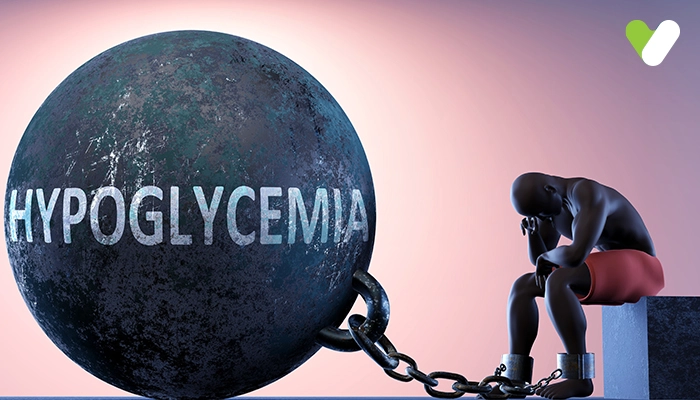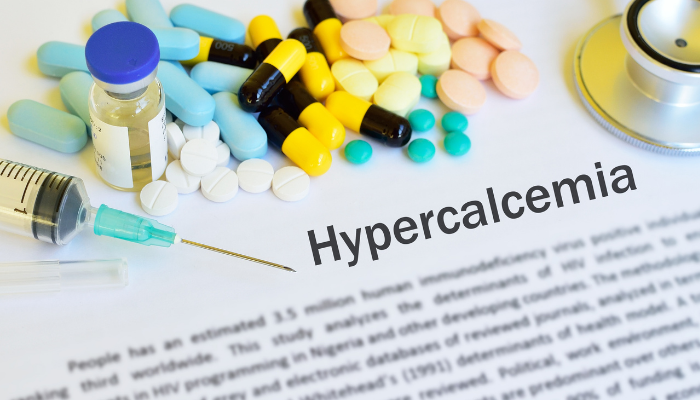There are multiple hypercalcemia causes that you should learn more about. Hypercalcemia is a medical condition where blood calcium levels rise above various normal thresholds. Excessive blood calcium levels may lead to the bones being weakened while leading to multiple other problems such as kidney stones and interfering greatly with the functioning of the brain and heart as well. Hypercalcemia or even severe hypercalcemia often happens due to parathyroid glands of an overactive nature.
The four smaller glands are located in the neck, in close proximity to the thyroid gland. Other hypercalcemia causes include cancer and also various medical illnesses, medical ailments, and consumption of excessive Vitamin D and calcium-based supplements. Here you will readily identify the symptoms and common factors behind hypercalcemia.
Symptoms of Hypercalcemia
There are many hypercalcemia symptoms or what we call high calcium levels in the blood. You may not witness any specific symptoms and other signs if there is a milder form of hypercalcemia. There are cases of a more severe nature and various other body parts being impacted by high blood calcium levels. Some of the instances include the following scenarios:- Digestive System Disorders- Hypercalcemia may lead to various stomach upsets and other issues like vomiting, nausea, and constipation, among other issues.
- Kidneys- Excessive calcium content may lead to the kidneys having to strain themselves for filtering out the same. This may lead to high levels of urination and thirst alike.
- Muscle and Bone Issues- In most circumstances, extra calcium in the blood may have leached from the bones. This weakens the bones greatly and may lead to issues like weaknesses with the muscles and pain in the bones.
- Heart Disorders- Severe hypercalcemia may lead to problems with the functioning of the heart, leading to fainting and palpitations along with indicating cardiac arrhythmia and other issues of the heart.
- Brain Problems- Hypercalcemia may lead to interference with the functioning of the brain, leading to lethargy, rampant confusion, and high fatigue levels while also leading to high depression.
When Should a Doctor be Visited?
You should immediately contact the doctor when you find symptoms or signs cropping up, indicating any hypercalcemia. These signs include frequent urination, thirst, and abdominal pain of a severe nature.Main Causes of Hypercalcemia
The biggest causes of hypercalcemia include various aspects. Along with helping in developing good teeth and bones, calcium enables the transmission of signals by the nerves and contraction of the muscles. If there is low calcium in the blood, then the parathyroid glands may end up secreting a hormone that leads the bones to either release calcium into the blood, excretion of less calcium and activation of higher Vitamin D and also absorption of higher calcium by the digestive tract.Some other causes include the following:
1. Overactive Parathyroid Glands or Hyperparathyroidism- This is the biggest reason behind the ailment and may come up from a non-cancerous or small tumor or any one of the glands getting excessively enlarged.
2. Other Ailments- Certain ailments including sarcoidosis or tuberculosis may lead to higher Vitamin D blood levels, leading to the stimulation of the digestive tract for higher calcium absorption.
3. Cancer- Breast and lung cancer, along with blood cancer may lead to higher risks of this ailment. Metastasis or the cancer spread leads to higher risks.
4. Immobility Issues- Those with conditions leading to sedentary lives may also witness hypercalcemia. Bones that do not bear much weight often lead to calcium being released into the blood.
5. Hereditary Aspects- There is a rare genetic ailment called hypocalciuric hypercalcemia which leads to blood calcium levels going up, owing to problematic receptors of calcium in the body. This may not always lead to any complications or symptoms.
6. Medication- Specific medication like lithium which is used for the treatment of bipolar disorder, may lead to the parathyroid hormone being released.
7. High Dehydration- A common reason behind hypercalcemia of a milder nature is always dehydration. The presence of lower body fluid may lead to calcium concentration increasing greatly.
8. Supplementation- Consumption of excessive calcium or Vitamin D supplements over a sustained duration may lead to calcium levels going up above normal levels in the blood.
The Bottom Line
You should take a closer look at the causes of hypercalcemia in order to stay alert and informed. Osteoporosis is a condition where the bones keep releasing calcium into the blood, leading to the disease developing and also spinal column curvature, fractures of the bones, and height losses. If the urine has excessive calcium, there could be the formation of crystals in the kidneys themselves.Over a period of time, crystals may lead to kidney stones being formed. Severe hypercalcemia is a disease that may lead to kidney damage, restricting their capabilities for blood cleansing and fluid elimination. There are several nervous system issues at times, including dementia, confusion, and even coma which may be fatal in some cases. Arrhythmia is another side effect where people suffer from irregular heartbeats.



